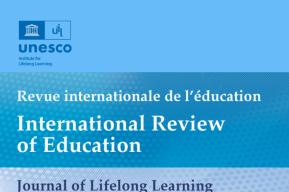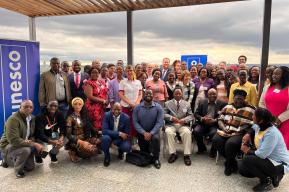News
Informal Language Learning is key for refugees and migrants’ integration in the Nordics

‘Language is power, power to communicate, express your ideas, and be a part of society,’ said Claudette Vigueras, a migrant from Mexico, during the opening of a conference on ‘Informal language learning for migrants in the Nordic countries’.
The event was organized by the Swedish NGO Språkkraft, in collaboration with the UNESCO Institute for Lifelong Learning (UIL) and the Nordic Council of Ministers. It took place on 9 December 2022 in Oslo, Norway, and online. Ms Vigueras expressed a key theme of the conference: the centrality of literacy to a person’s lifelong learning journey and to the empowerment of migrants.
The conference brought together experts from academia, representatives from the media, civil society, formal education, municipal governments, the private sector, and migrants to exchange experiences and the latest research on language learning among migrants through the use of traditional and advanced media.
An analysis by Oxford Research showed that language training is a key element of integration policies in all Nordic countries. However, participants argued that more innovative ways of providing language learning need to be explored. It was noted that technology can boost and support both formal and informal language training.
Breakout sessions on the role of municipalities in informal language learning for migrants, informal language learning in the workplace, and media and migrants promoted a lively exchange among participants. The conference concluded with synthesis, reflections, and a panel discussion on the way forward in this field of work.
In the closing session, the need for cross-sectoral collaborative research projects on informal language learning, literacy development and media for and with migrant populations in the Nordics and beyond was emphasized. UIL will continue to examine promising policies and practice for migrants’ literacy and language learning and will add some of these examples to LitBase, its database of literacy programmes and trainings.









